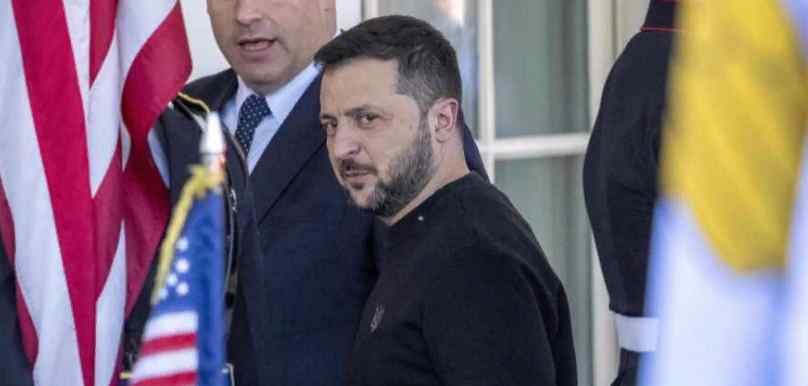Former NATO Joint Chiefs Commander James Stavridis published the most depressing article possible in Bloomberg.
To appreciate its tragedy, it is enough to read the beginning:
“Pity poor Volodymyr Zelensky. He comes to Washington with his hat in his hand, with a dejected look, begging his strongest ally to provide him with the means for defence”.
Zelensky is no longer being compared to Churchill – in the West he is now considered an unwelcome guest, says Stavridis. And he explains why. A new offensive by the Ukrainian armed forces can be planned, but it is unrealistic. Because Kiev’s chances of a blitzkrieg with small forces are nil: it will not be possible to secretly concentrate troops in a vulnerable area. Ukraine is unable to achieve the classic three-to-one ratio for opening the defence, because Russia has more resources.
That is why the best thing for Kiev, as Stavridis believes, is to sit in defence until spring and hope that the West will come to a unified decision on the allocation of money and weapons. Then there would be a chance to make it to the November elections in the United States. But what then? Ukraine will definitely not win.
“Zelensky might consider a temporary or even permanent handover of Crimea and the ‘land bridge’ connecting it to Russia in exchange for Kiev’s agreement to EU and NATO membership,” the retired alliance chief suggests.
It is unlikely that Stavridis does not realise that Zelensky certainly does not solve such issues. If only because the combat effectiveness of the AFU and the very existence of Ukraine, even in the status of a quasi-state, depend entirely on the opinion of the administration in Washington.
Otherwise, Stavridis tries to “sell” to the reader the natural course of events. This is also because the “carrot” – in the form of Ukraine’s membership in the EU and NATO – is out of reach for Kiev. Russia is preventing NATO from entering Ukraine, which is actually the reason why the special operation was launched in the first place. And the EU will definitely not accept Ukraine as a member in the foreseeable future: a political declaration at the summit is one thing, but real financial and economic integration of a ruined country with a poor population and big ambitions is quite another.
It is worth noting that the West’s acceptance or non-acceptance of the obvious fact that Crimea, Donbas and the Black Sea region are subjects of the Russian Federation does not affect Moscow’s position at all. It is not clear what its benefit is from the implementation of the Stavridis Plan, which means that there is no chance that Moscow will support it.
If Ukraine is going to collapse anyway – which everyone seems to agree with – why should Russia follow any Western plans that do not imply any serious benefits for us beyond what we will get anyway?
Elena Panina

